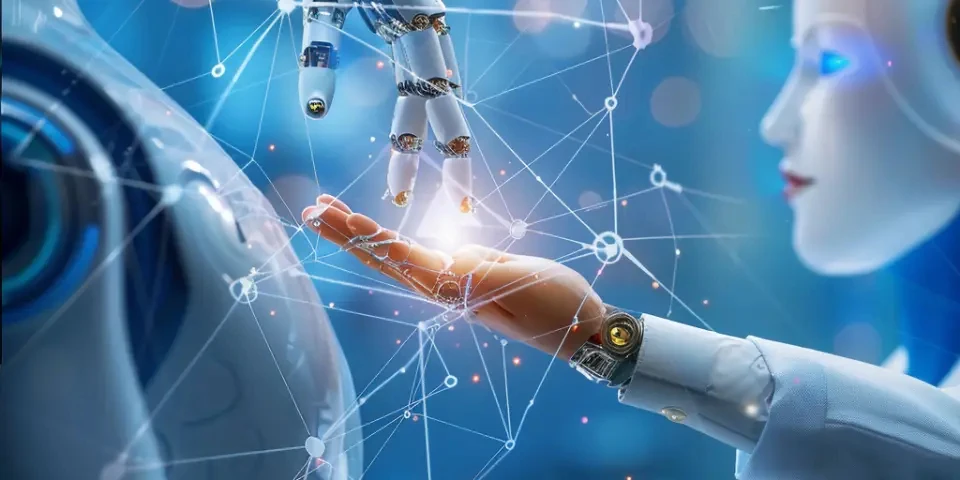The impact of AI on job automation and the future of work
The rapid development of artificial intelligence (AI) has raised concerns about job automation and its impact on the future of work. As AI continues to advance, it is increasingly capable of performing tasks traditionally done by humans. This has created both opportunities and challenges in various industries. In this article, we will explore the impact of AI on job automation and what it means for the future of work.
1. Increased efficiency and productivity
One of the key benefits of AI in job automation is the potential for increased efficiency and productivity. AI-powered tools and software can perform repetitive and mundane tasks much faster and with fewer errors than humans. This allows employees to focus on more complex and strategic activities, leading to higher overall productivity for organizations.

For example, in the customer service industry, chatbots powered by AI can efficiently handle routine customer inquiries, freeing up human agents to handle more complex issues that require human intervention. This not only reduces customer waiting times but also improves the overall customer experience.
2. Job displacement and transformation
While AI brings efficiency, it also poses a risk of job displacement. Some tasks that were traditionally performed by humans can now be automated by AI, leading to potential job losses. However, it is important to note that AI also creates new job opportunities and leads to job transformation.
Workers whose jobs are at risk of automation need to upskill or reskill to adapt to the changing job landscape. The focus should shift towards acquiring skills that complement AI, such as critical thinking, creativity, and problem-solving, which are difficult for machines to replicate.
3. Impact on specific industries
The impact of AI on job automation varies across different industries. Some sectors are more susceptible to automation than others. For example, routine manual jobs in manufacturing, agriculture, and transportation are at higher risk of being automated, while roles that require high-level human interaction, creativity, and complex decision-making are less likely to be fully automated.
In healthcare, AI is revolutionizing diagnostics and treatment options, enabling faster and more accurate diagnosis. AI-powered robots can assist in surgeries, reducing the margin of error and enhancing patient outcomes. However, while AI can enhance medical services, it cannot replace the expertise and empathy provided by healthcare professionals.
4. Ethical concerns and bias
As AI becomes more prevalent in job automation, ethical concerns arise. AI systems are only as good as the data they are trained on, and if the data is biased, it can result in biased decision-making. For example, AI-powered recruiting tools can inadvertently perpetuate existing biases in hiring practices.
It is crucial to address these ethical concerns and ensure that AI systems are designed and trained using diverse and unbiased datasets. Regulations and guidelines need to be in place to prevent discriminatory practices and ensure fairness in the use of AI.
5. Collaboration between humans and AI
Contrary to popular belief, AI is not meant to replace humans entirely. The future of work involves collaboration between humans and AI, with each complementing the other's strengths. AI can handle data-intensive tasks and provide valuable insights, while humans can contribute their emotional intelligence, creativity, and critical thinking skills.
For example, in the field of finance, AI can assist in analyzing vast amounts of data to make investment recommendations. However, the final decision and understanding of the broader economic and social context still rely on human expertise.
FAQs:
1. Will AI completely replace human jobs?
No, AI is not expected to completely replace human jobs. While some tasks can be automated, there are still jobs that require human skills such as empathy, creativity, and complex decision-making. The focus should be on upskilling and reskilling to adapt to the changing job market.
2. How can individuals prepare for the impact of AI on job automation?
Individuals can prepare for the impact of AI by acquiring skills that complement AI, such as critical thinking, creativity, and problem-solving. Continuous learning and staying updated with emerging technologies will be essential to thrive in the future job market.
3. What are the potential risks of widespread job automation?
Widespread job automation can lead to job displacement and inequality if certain sectors or regions are disproportionately affected. Additionally, the ethical implications of AI, such as bias in decision-making, need to be addressed to ensure fairness in the use of AI systems.
References:
1. Arntz, M., Gregory, T., & Zierahn, U. (2016). The Risk of Automation for Jobs in OECD Countries: A Comparative Analysis. OECD Social, Employment and Migration Working Papers, No. 189, OECD Publishing, Paris.
2. Bessen, J. E. (2019). AI and Jobs: The Role of Demand. NBER Working Paper No. 24235.
3. Manyika, J., Chui, M., & Miremadi, M. (2016). Where machines could replace humans—and where they can’t (yet). McKinsey Quarterly.
Explore your companion in WeMate